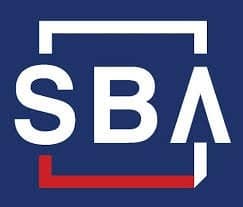Carnegie Mellon Study Finds Ride-Hailing Technology Mitigates Impact of Racial Discrimination
Ride-hailing systems reduces the effect of racial discrimination, according to a Carnegie Mellon study. Uber and Lyft are actively reducing Black riders ‘ wait-time disparities, but widespread segregation still persists. A new study from researchers in Carnegie Mellon University’s College of Engineering found that ride-hailing apps like Uber and Lyft have helped to mitigate racial discrimination against Black passengers.
The study builds on earlier research that found that using a brand with a black sound caused withdrawal rates to be twice as high as those with a white sounding name, but that was despite the fact that the wait times for rides were either the same or slightly different. To know the similarity in delay periods, the CMU experts ran models of all the trips taken in Chicago, both before and after the Covid-19 crisis, across a variety of time.
According to the study, at least 3 % of vehicles has exhibit race-based discrimination in order to cause the cancellation disparities that previous studies have observed. However, it also demonstrated that the potential of these services to quickly fight riders to new drivers almost eliminates the effects of motorist racial bias on rider wait time differences. ”
The technology is mitigating a social issue, which is pretty rare”, said Jeremy Michalek, professor of engineering and public policy ( EPP ) and mechanical engineering. Discrimination has a small impact on regular wait periods, at least partially because these apps can quickly rematch when someone cancels.
While racism against people who hail trips has been a problem since the days of the car, it has been one of the most difficult problems to solve. According to Destenie Nock, teacher of EPP and civil and environmental engineering,” some groups with extremely long wait times may get lost because it is a hidden inequity where people only get passed by on the road.”
The group concentrated on Chicago, one of the most residentially segregated cities in the United States, because of the rapid reconnection that allows people to get to work on time, create their hospital visits, and become active participants in the transport system. According to the study, Black users in Chicago experience noticeably longer wait times also when owners treat everyone equally because of their local communities.
Home styles in Chicago are influenced by a long history of unfair practices, including discrimination, and other components like inherited wealth and homes. Today, Black people are concentrated in South Chicago, which is further from hectic city sections, meaning fewer individuals are in the area to pick up people.
This study is unique because it distinguishes” widespread discrimination,” where the effects of direct bias are small or disappear entirely, from “direct discrimination,” like when a pilot cancels on a horse because of their race, from systemic discrimination, which has informed patterns in where people live. Being able to distinguish between these effects can influence how disparities are addressed in the real world.
According to Michalek, “it is encouraging how effectively this technology has reduced the effects of driver discrimination on riders.” ” But in a society with entrenched disparities, even a service without any direct racial bias can produce large gaps in service quality that can reflect, or even exacerbate, existing disparities “.
Corey Harper, assistant professor of civil and environmental engineering and the Heinz College, and EPP alumnus Aniruddh Mohan also contributed to the research. About the College of Engineering: Carnegie Mellon University’s College of Engineering is a top-ranked engineering school known for its deliberate effort to foster cross-disciplinary collaboration in research.
The College is well-known for tackling issues that are both important for science and practical purposes. Our “maker” culture is ingrained in everything we do, which in turn produces novel ideas and transformative outcomes. Our renowned faculty places a premium on innovation management and engineering to produce transformative outcomes that will help our community, nation, and world grow intellectually and economically.


